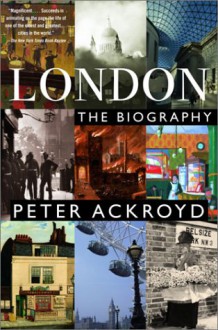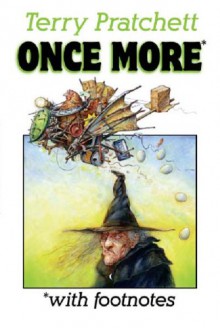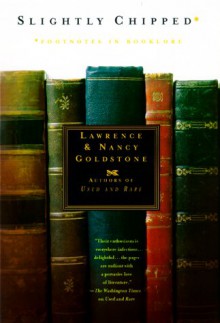
London is one of those long books that I love but as usual, sends me off to google. There are SO many other books referenced in the text that sound fascinating - and you have to wonder, is this book as interesting as it sounds from this quote? Is the interest aided mainly because Ackroyd loves the subject, or would I find it readable even if this book hadn't made it sound good? And for older books that might be out of copyright and online - well, I always have to go look to see if I can find the book, or at least read an excerpt. Of course finding them is the trick.
This often leads to websites which will sell you the books but that have little info about the contents - IF I actually can find any info about them online, that is. And that brings me to one book tease - the review that doesn't tell you anything, just hints at info. I'm not linking because I'm not wanting to spotlight this person, there are SO many people that do this. Example, not an exact quote:
This book contains many stories of this European city that I'd heard before, some that I haven't. It's a fascinating city, and I really want to make time to visit it someday.
I'd have been the slightest bit happier if there'd been mention of at least one or two of the stories this reviewer had heard - or hadn't. A noun, a place name, a person, maybe? Then I'd have something to go on and understand the star rating. As it is I have nothing to glean from that (except that this person wants to travel), and no one else reviewed this particular old book. So...yeah. Set that aside and moving on to other books I can find out more about.
The other book tease is done by authors when they cite something in the text, but there's no footnote. Ackroyd has an entire chapter at the end of this book that's an essay on his sources - but there's no way to tell within the text exactly where some of his references come from - unless he cites the book and author. (And then you'll know that much, but not where in the book that quote comes from.) Here's an example of a tease without a source:
p 111: "...At the very beginning of the nineteenth century a London journalist known as "Aleph" wandered down Lothbury, recalling its previous "tortuous, dark vista of lofty houses" lit only by oil lamps; since Aelph's journey it has changed many times, yet it still remains unique and identifiable, most particularly with its recurrent "darkness" and loftiness."
Yes, I'll get around to googling that. But just from previous reading and knowing how many newspaperfolk in that area used single names (or humorous pseudonyms) - you're not going to find them easily unless the author published multiple articles, in online-accessible papers. Or so I've found from past searches like this. (Will update if I find anything later.)
More babble later, am being paged to go help...
LATER:
Aelph apparently (I think) wrote London Scenes - ah ha, here we go:
London Scenes and London People
Had to look through several ugly .txt docs before I finally found that link - it's at archive.org. It would have helped to know that Aelph was a pen name of William Henry Harvey, 1811 - 1866. That's if archive.org is correct with that author name/date. I only know that the wikipedia page for him only mentions his botany work. And see, I think it's NOT the same Harvey - because other sources note: "William Harvey, wood-engraver, illustrator and writer of verse for children." Soooo, hmmm.
This is now become the mystery of Who is Aelph? Or Which William Harvey?
Which is again why I say footnotes: I read them, I love them. If you care enough to cite authors, please footnote so that I may then go read their books too. Don't be a tease about it.


 Log in with Facebook
Log in with Facebook 









